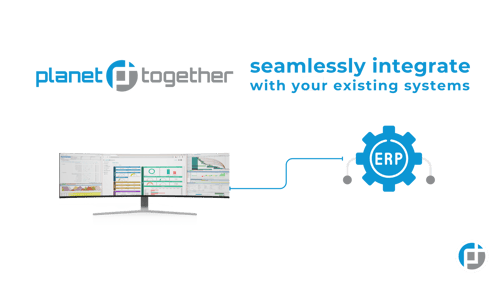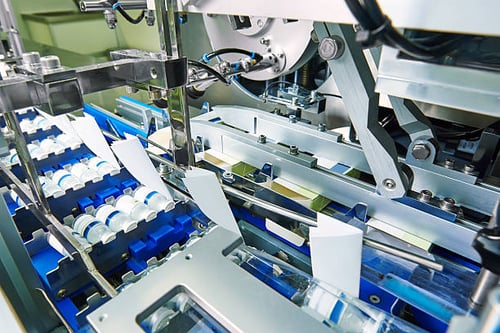
Tackling Supply Chain Disruptions While Upholding Quality and Compliance in Pharmaceutical Manufacturing
In the pharmaceutical manufacturing sector, production schedulers face an intricate balancing act: meeting fluctuating demand, securing timely access to raw materials, ensuring compliance with stringent regulations, and maintaining high product quality. This complex environment becomes even more challenging when global supply chains are disrupted by economic instability, geopolitical tensions, pandemics, or regulatory shifts.
To maintain operational continuity and product integrity, pharmaceutical manufacturers must adopt smarter planning tools and integrated systems. Advanced Planning and Scheduling (APS) solutions like PlanetTogether, when integrated with enterprise systems such as SAP, Oracle, Microsoft Dynamics, Kinaxis, or Aveva, offer a strategic advantage. They enable schedulers to respond proactively to supply chain risks while keeping quality and compliance front and center.
The Stakes: Why Supply Chain Disruptions Matter in Pharma
Pharmaceutical production operates under rigorous Good Manufacturing Practice (GMP) standards, where even minor deviations can compromise product safety and compliance. A disruption in the supply chain—whether a delayed shipment of active pharmaceutical ingredients (APIs) or a change in supplier status—can ripple through the production schedule, causing bottlenecks, expired batches, or even regulatory breaches.
Moreover, pharmaceutical manufacturers must comply with regulatory authorities like the FDA, EMA, and WHO, which require strict documentation, traceability, and process controls. These requirements compound the complexity of rescheduling production in response to real-world disruptions.

The Role of the Production Scheduler
The production scheduler is at the epicenter of this operational puzzle. Their job isn't just about creating a sequence of tasks on the shop floor—it’s about ensuring that the right resources, materials, and timelines align with compliance and quality requirements. This includes:
Prioritizing critical batches (e.g., for life-saving or short-shelf-life medications)
Managing changeovers and cleaning protocols to avoid cross-contamination
Rescheduling efficiently when suppliers fail to deliver
Coordinating with quality control (QC) and quality assurance (QA) teams
Schedulers must constantly optimize around competing objectives: efficiency, flexibility, compliance, and resilience.

Integration of APS with ERP: A Unified Strategy
This is where the integration between PlanetTogether APS and ERP systems like SAP, Oracle, Microsoft Dynamics, Kinaxis, or Aveva becomes transformational. Here’s how:
Unified Data Ecosystem
Integrating APS with ERP systems ensures all scheduling decisions are based on real-time data—inventory levels, supplier lead times, batch release statuses, equipment availability, and compliance checkpoints. This reduces errors from data silos and enables more responsive scheduling.
Scenario Planning and Risk Mitigation
PlanetTogether allows production schedulers to simulate different scenarios (e.g., a 10-day delay in API delivery or sudden equipment downtime). This simulation capability, when fueled with ERP data, helps evaluate multiple contingency plans without affecting the live schedule.
Automated Alerts for Compliance-Sensitive Processes
With integration, schedulers can receive automated alerts if a production plan violates compliance thresholds—such as overlapping cleaning windows or using an uncertified supplier. This built-in compliance assurance reduces manual oversight and ensures faster decision-making.
Real-Time Collaboration Across Departments
The integration enables synchronized visibility for operations, procurement, QA, and regulatory teams. When a production schedule is adjusted in PlanetTogether, the changes flow automatically into the ERP system and vice versa, promoting transparency and alignment.
Addressing Common Supply Chain Challenges
Challenge 1: Volatile Lead Times
APIs and excipients are often sourced globally, and lead times can fluctuate due to transportation delays or raw material shortages. Integrated APS helps schedulers dynamically adjust production plans based on updated delivery dates from the ERP system.
Challenge 2: Limited Supplier Base
Many pharmaceutical companies work with a small number of certified suppliers. If one fails, switching suppliers can take weeks due to regulatory requalification. By leveraging what-if simulations in PlanetTogether, schedulers can plan buffer inventory or adjust batch sizes to bridge gaps without affecting compliance.
Challenge 3: Regulatory Holds and Lot Release Delays
Regulatory testing and documentation can delay batch releases. Integration ensures that production is synchronized with QA and lot release updates in the ERP system, avoiding premature scheduling of dependent processes.
Challenge 4: Equipment Downtime and Maintenance Windows
Production lines in pharma are often specialized and require validation after maintenance. With APS-ERP integration, maintenance schedules from systems like Microsoft Dynamics or Aveva can feed directly into PlanetTogether, enabling accurate downtime modeling and minimized impact on production.

Enhancing Quality and Compliance with Integrated Scheduling
Compliance in pharmaceutical manufacturing is non-negotiable. Integrated scheduling enhances compliance in several ways:
Batch Traceability: Integration allows complete traceability from raw material intake to final product shipment, fulfilling documentation requirements.
Validation Scheduling: PlanetTogether can schedule mandatory equipment validation and requalification tasks alongside production, ensuring compliance timelines are met.
Audit Readiness: With synchronized data, manufacturers can demonstrate process adherence and corrective action timelines instantly during regulatory audits.
GMP Integration: Schedulers can flag or prevent the use of materials or machines that have not passed GMP checks recorded in ERP systems.
For production schedulers in pharmaceutical manufacturing, the challenge isn’t just about keeping the lines running—it’s about ensuring that every dose produced meets the highest standards of safety, efficacy, and compliance, even amidst supply chain volatility.
By integrating PlanetTogether APS with ERP systems such as SAP, Oracle, Microsoft Dynamics, Kinaxis, or Aveva, pharmaceutical manufacturers gain the agility and foresight necessary to navigate disruptions while protecting both product quality and regulatory standing.
The future of pharmaceutical manufacturing will belong to those who can pivot quickly—without compromising integrity. With the right technology integration, schedulers can be the linchpin of this strategic advantage.
Are you ready to take your manufacturing operations to the next level? Contact us today to learn more about how PlanetTogether can help you achieve your goals and drive success in your industry.